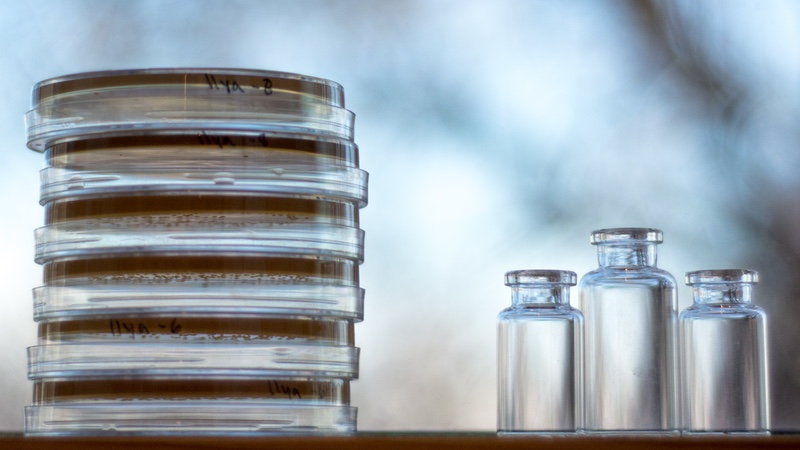Ilya Pharma puts “science first.” Cofounded by Evelina Vågesjö and Professor Mia Phillipson in 2016 and based in Uppsala, Sweden, the company is pioneering an organic mechanism to treat skin and mucosal wounds, redefining drug delivery by using live bacteria to produce the active therapeutic in the wound.
While working on her PhD project in Professor Phillipson’s lab at Uppsala University, Vågesjö et al. discovered a new mechanism in tissue regeneration. The chemokine CXCL12 was found to directly contribute to blood flow regulation in injured tissue, acting through a specific type of immune cell and affecting its behaviour locally.
The laboratory hypothesised that if they could amplify the effect of this chemokine, the restitution of the ischaemic tissue could be accelerated. Identifying the clinical potential of this discovery and seeing room for improvement in the wound care market, Ilya Pharma was founded.
Initially, a plasmid was engineered to optimally work in lactic acid bacteria and also to encode one of an array of chemokines or chemotactic proteins. Next, different strains of lactic acid bacteria were electroporated with the modified plasmid. Early stability, safety and expression experiments yielded positive results, so the delivery mechanism was refined to meet a very big but, as yet, unmet medical market — treating chronic wounds.
Based on the concept that immune cell behaviour could be altered by CXCL12 in a similar way and utilised in injured skin to drive the regeneration phase, the onsite drug delivery system was tested. When placed in the chronic wound of a patient, the genetically modified bacteria produce and secrete the chemokine for about 1 hour, activating the patient’s immune cells and leading to accelerated tissue repair.

Now the treatment’s mechanism of action has been elucidated, Frank explains that the company is conducting risk assessments and making sure a safe and sterile product can be produced. “Carefully designing a scaled-up manufacturing process is key,” he says, “as are finding ways to continue developing this innovative product.” Frank comments that in August this year, Ilya will be the first company to move into the recently built Testa Centre in Uppsala. The Swedish government, wishing to make the country a biomanufacturing power house, invested heavily in developing the centre, supported by GE Healthcare.
In January this year, preclinical results and the mechanism of action of the drug delivery method were published in PNAS. The company is now ready to embark on clinical trials for this radically different treatment, which are due to start in spring 2019. The company is also currently preparing for a pre-IND meeting with FDA. And, if Phase I is a success, they hope to start recruiting for Phase II clinical trials, which are set to begin in 2020.
Vågesjö comments: “Currently, microbiome therapeutics and biologics are emerging, and this is an ideal time to be making such exciting strides in this fast developing field.”
Looking ahead to the future, Vågesjö says that the company is working on a new oral treatment for inflammatory bowel disease. “We’ve learnt a great deal about fulfilling regulatory requirements early on in development,” notes Franks, “and how that expedites time to market, which we’ll certainly apply to the new oral treatment.”
At the heart of the company, though, is its science first approach. Maintaining this outlook is paramount to Vågesjö, who talks convincingly of being inspired by the therapeutic potential of the discovery, being scientifically minded — even in business — and striving to put Ilya Pharma on the map. And I’ve no doubt that the therapeutic market will see many new exciting developments from this astute Swedish company.
